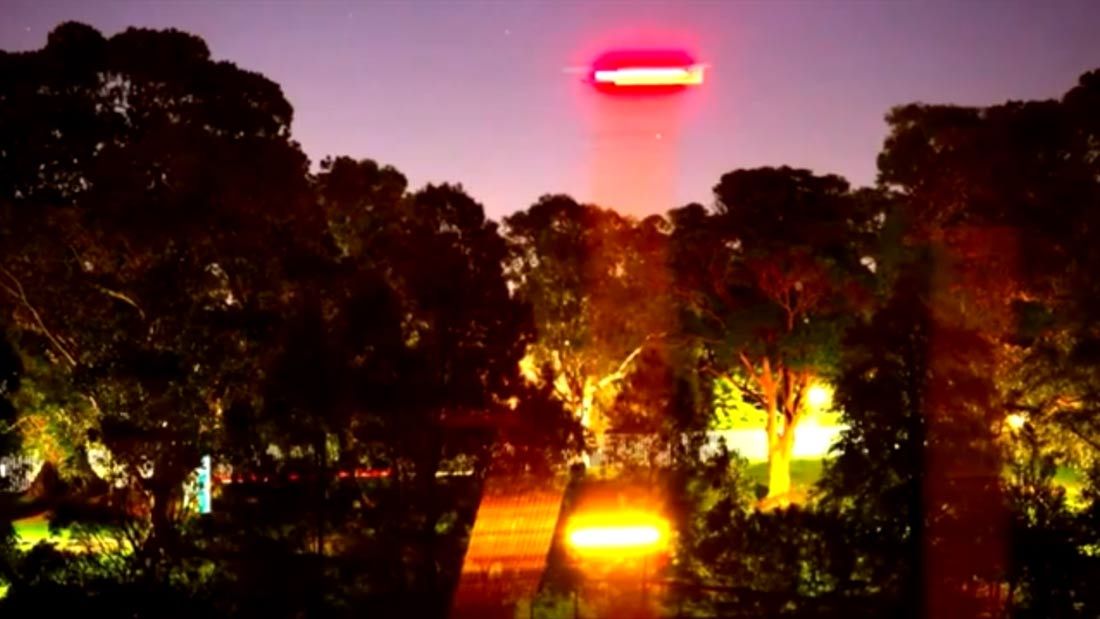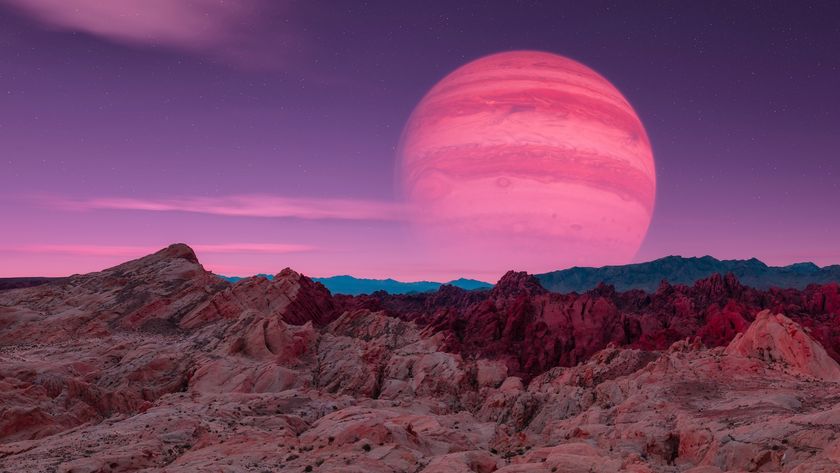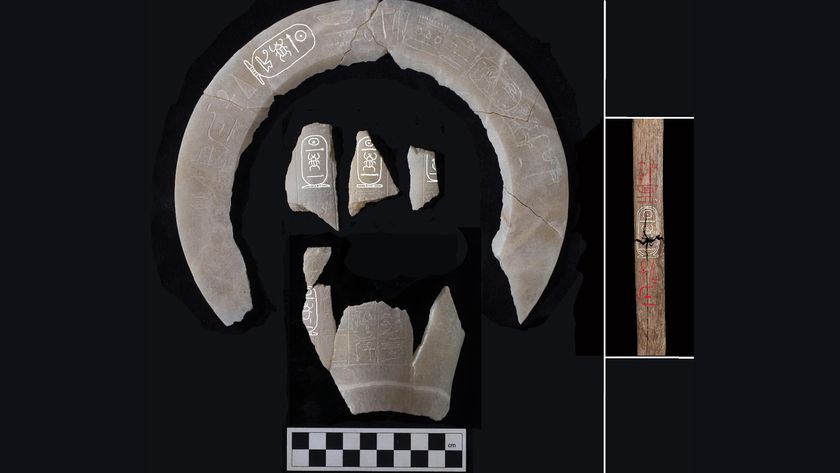
What's Behind Russell Crowe's UFO Video

A short video clip recently taken by actor Russell Crowe was uploaded to YouTube earlier this week and has many wondering if he might have recorded a UFO from his apartment overlooking a marina in Sydney, Australia.
Crowe tweeted, "A friend and I set camera to capture fruit bats rising from Botanic Gardens. This was a big surprise."
The big surprise wasn't bats but instead two mysterious, glowing red or yellow rodlike objects (or streaks), one above the other, moving in tandem from right to left in increments over the course of three photographs. The top image in the sky seems to be casting a light directly downward, though curiously the light does not seem to be reflected by any of the trees or leaves nearby.
Of course any time anyone connected with Hollywood or the entertainment business captures anything weird on video — whether it be a Bigfoot, a ghost, or a UFO — the suspicion often turns to a hoax created for publicity. Indeed, several videos in recent years have been revealed as computer-generated hoaxes. Sometimes the intent is to stir up publicity for an upcoming science-fiction film, though in one case last year a viral video of an eagle snatching a baby in a park turned out to be a student project for a Canadian art school. In this case, however, there seems little motivation for Crowe to hoax a UFO video; his new film, "Broken City," is about a crime drama, not aliens. [The World's 6 Greatest Hoaxes]
Though Crowe's UFO video is claimed to be a time-lapse video, it is not. A time-lapse video typically compresses an extended recording of an image (typically a static shot taken over the course of hours, days, or even weeks) into a few seconds or a few minutes. What Crowe allegedly recorded is closer to a timed exposure, which is a single photograph (or series of photos) taken over a long period of time. Timed exposures are often used in low light or at night, and are used to help pick up poorly lit images in the frame (such as the flying bats that Crowe was attempting to photograph).
However the same process that allows poorly lit images to be recorded also overcompensates for brightly lit objects, such as electric lights. This results in the well-known effect of light streaks of moving cars seen on nighttime highways, or photos of fireworks. Indeed this exact effect can be seen in Crowe's images, which appear large because they were taken with a telephoto lens.
One person has posted a fairly convincing analysis of the video, showing that the image is almost certainly a passing sailboat whose lights were accidentally captured by Crowe's camera. Perhaps the biggest clue that the UFO existed only in Crowe's camera (and not over Sydney, Australia's most populous city) is that no one else saw it or recorded it. Surely if such a brightly lit, mysterious object was hovering over Sydney's Botanical Gardens, it would have been seen by hundreds or thousands of other people — and likely recorded on at least a few smart phones.
Sign up for the Live Science daily newsletter now
Get the world’s most fascinating discoveries delivered straight to your inbox.
Crowe, of course, isn't alone in his sighting. Several film stars, celebrities and politicians have reported seeing UFOs; President Jimmy Carter was said to have seen a UFO, as have Nation of Islam founder Louis Farrakhan, Congressman Dennis Kucinich,John Lennon, and others.
Of course, as Crowe's photos show, all it takes to create a UFO sighting is to see or record something unidentified flying or floating in the sky — and not everything unidentified is unidentifiable.
Benjamin Radford is deputy editor of "Skeptical Inquirer" science magazine and author of six books including "Media Mythmakers: How Journalists, Activists, and Advertisers Mislead Us." His Web site is www.BenjaminRadford.com.
Follow LiveScience @livescience, Facebook or Google+. Original article on LiveScience.com.

Most Popular




